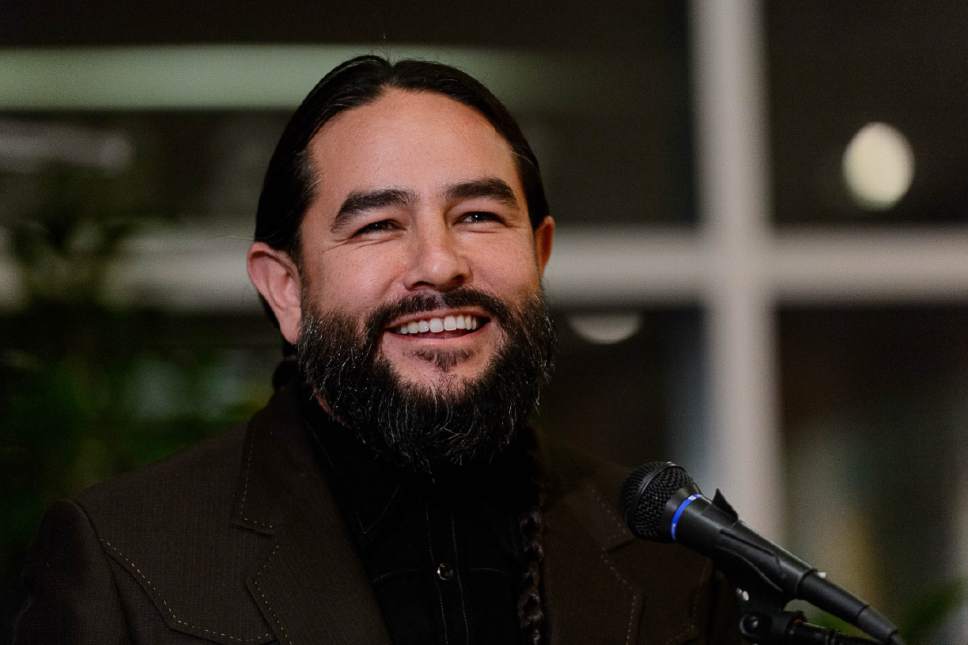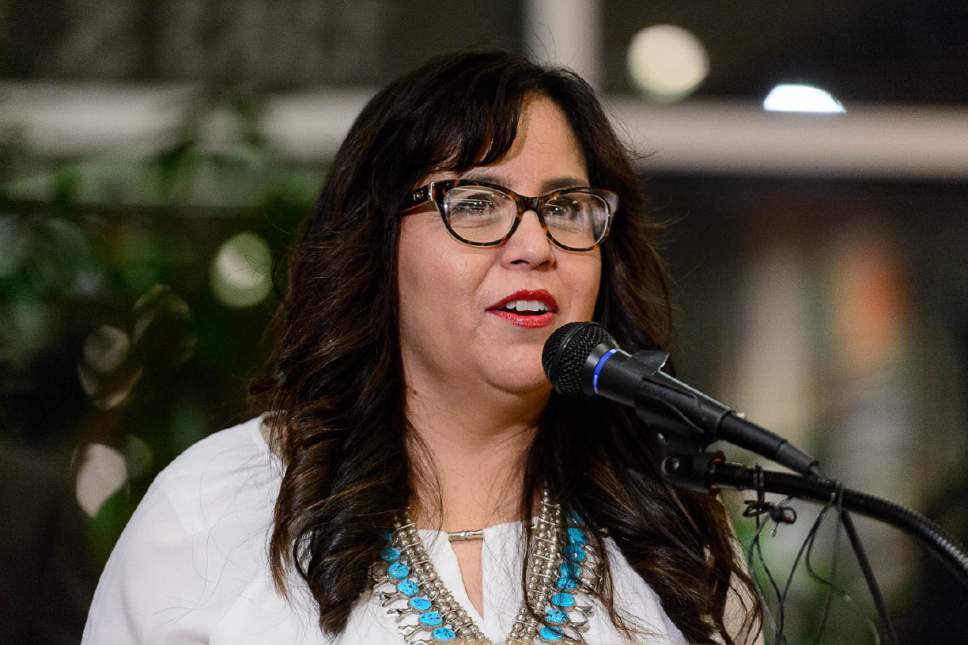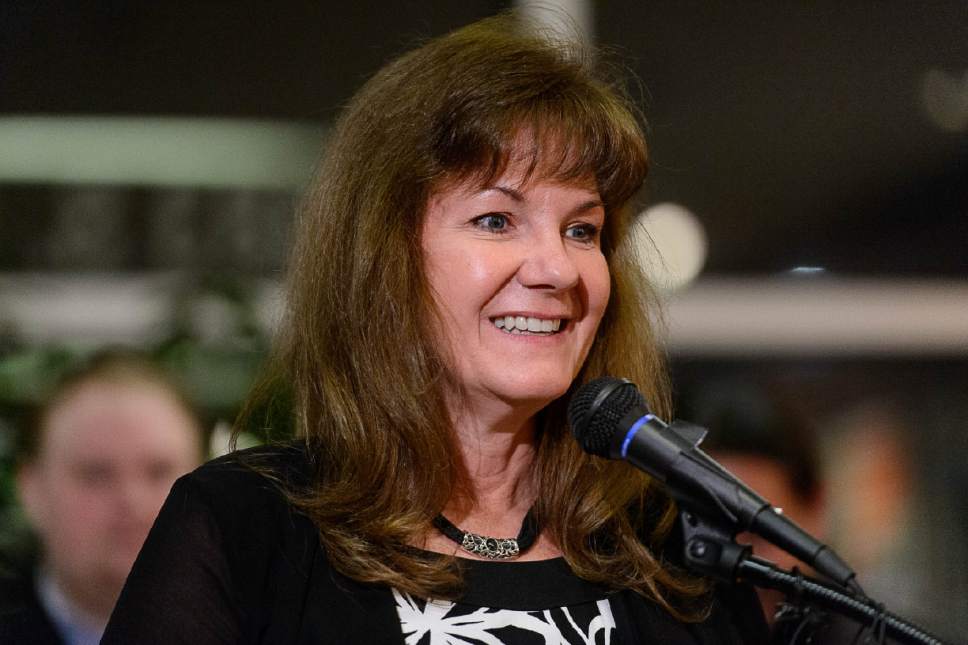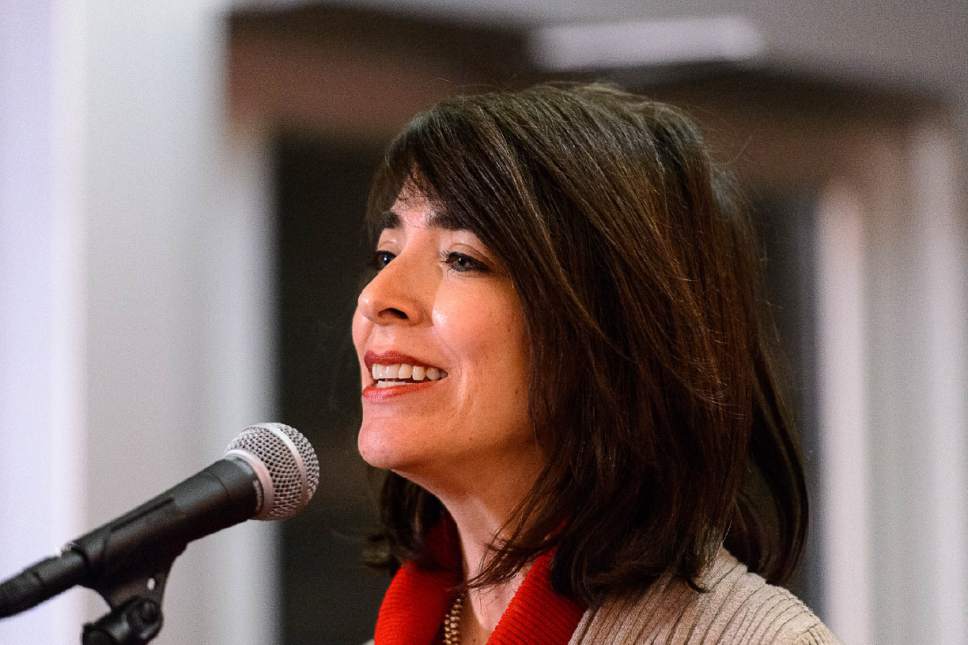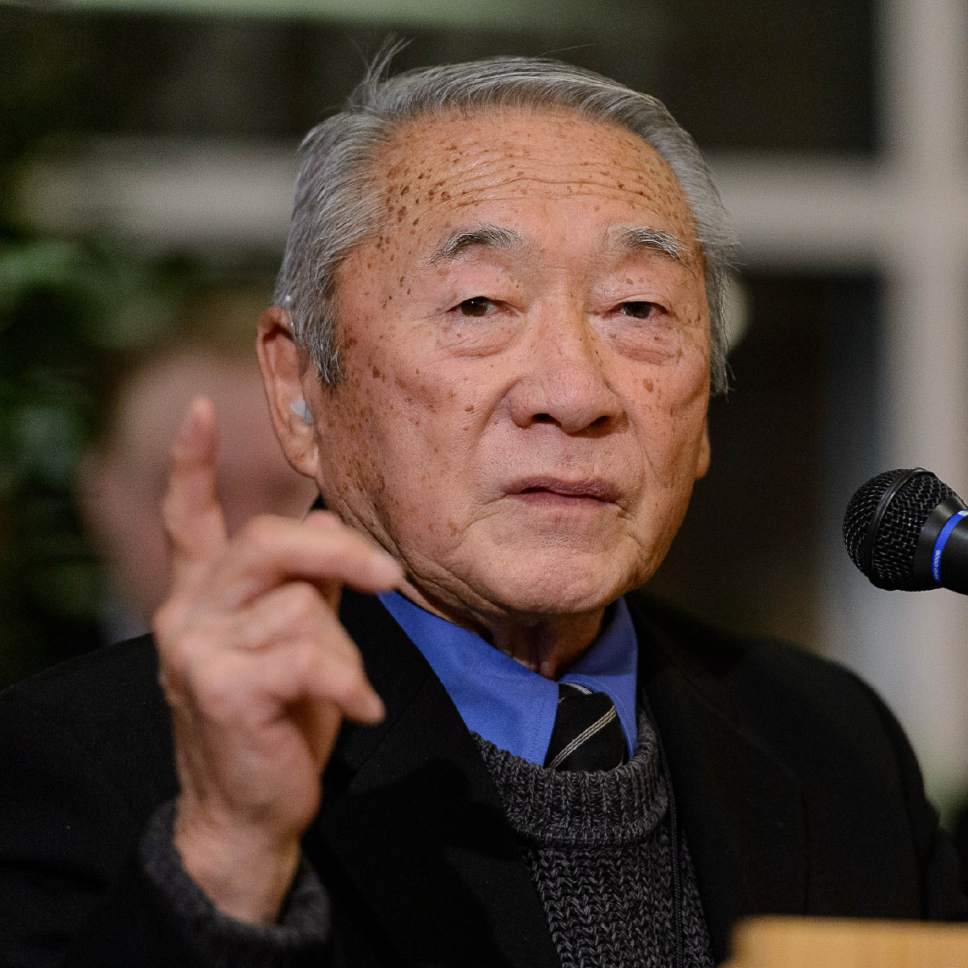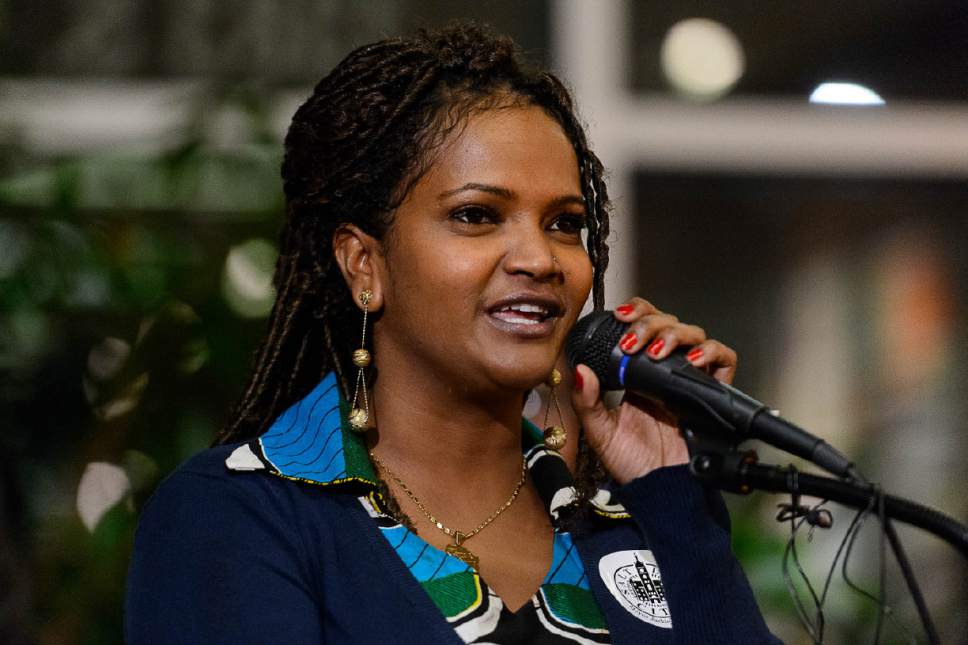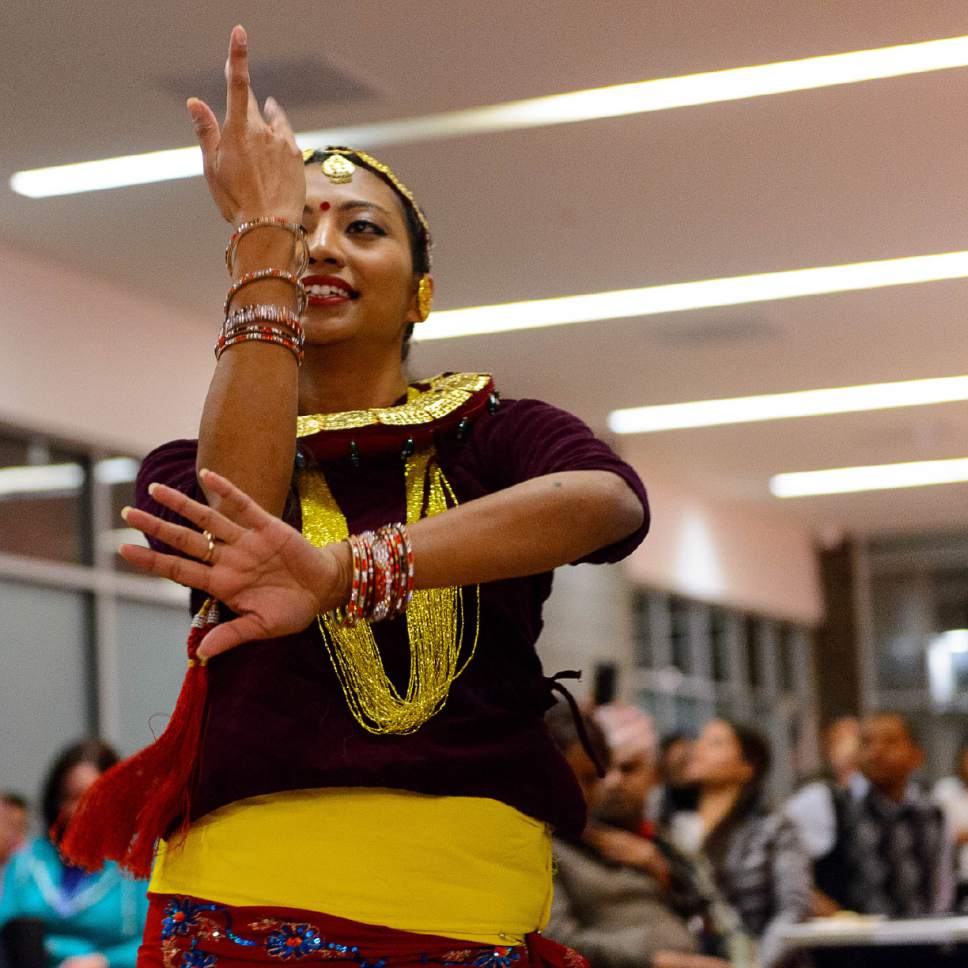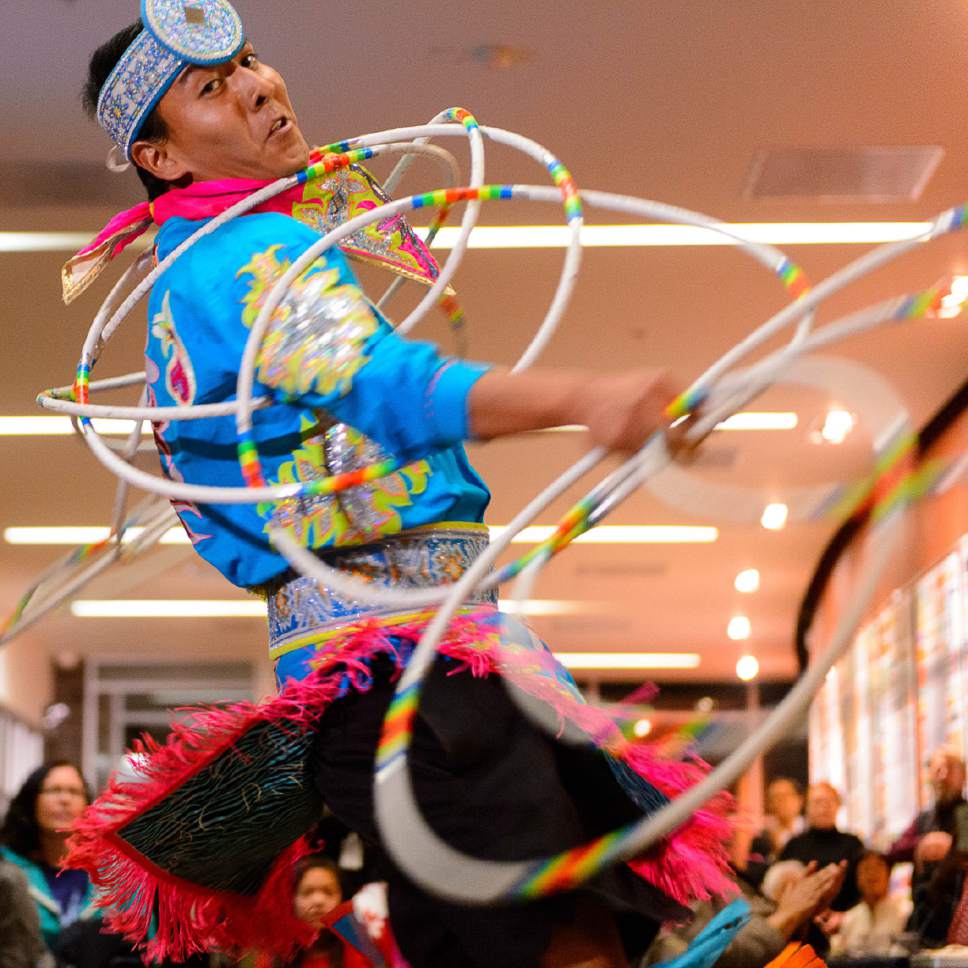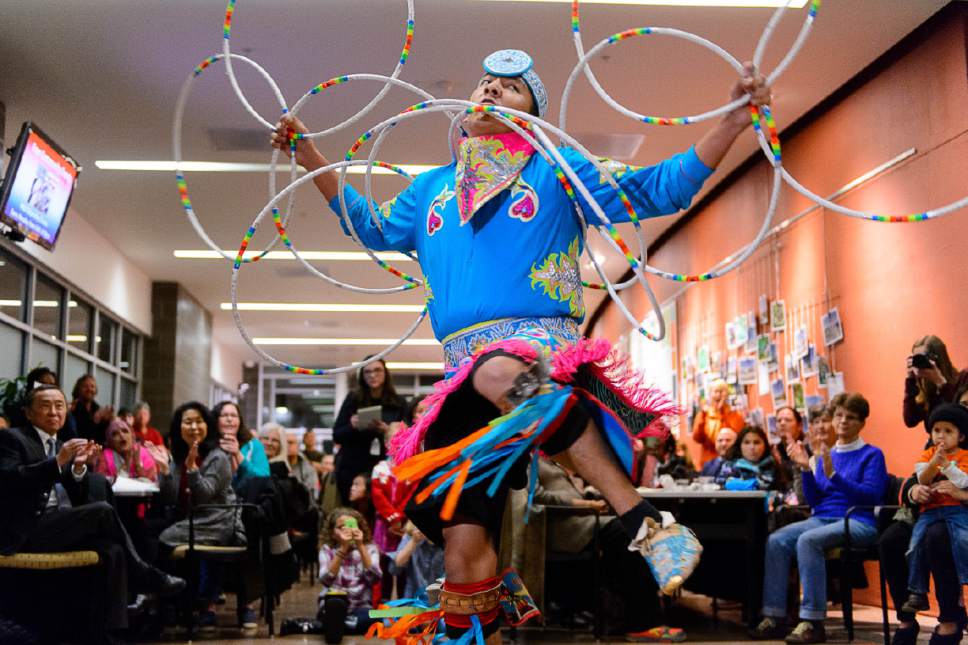This is an archived article that was published on sltrib.com in 2016, and information in the article may be outdated. It is provided only for personal research purposes and may not be reprinted.
Something about wearing her traditional sari with its red and gold sequin flowers has felt different to Aarati Ghimire since Donald Trump was elected president.
Nothing about the black fabric — a soft, tulle-like material — has changed, but the thought of donning something that represents her Nepalese culture and her womanhood has been marred by what she calls the "traumatic election" of someone who ran on a platform of "sexist and racist comments."
So when Ghimire put the sari on Saturday night it wasn't without anxieties for the future of the country — how immigrants like herself and her family will be treated, how Trump's calls for deportations will pan out while he's in office and how performing her cultural practices will be tolerated. Despite those concerns, she chose to embrace the dress on Saturday night to dance with two other women at Salt Lake City's celebration of Human Rights Day.
"It's more important this year," she said, than it has been before.
Ghimire, 25, was one of more than 50 attendees at the annual event commemorating the 1948 adoption of the United Nations' Universal Declaration of Human Rights, which calls for respect to all peoples worldwide. This year's celebration in Utah focused on indigenous groups, influenced by the recent protests against a pipeline that was set to run near the Standing Rock Sioux tribe's reservation in North Dakota.
As it poured rain outside, those inside gathered close to watch a woman singing Iranian ballads about love and hope. They rallied and cheered, too, as 26-year-old Patrick Willie danced an American Indian hoop routine.
Willie, a Navajo, said the dance represents unity and healing — two things he believes the U.S. could use more of right now. As he moved across the makeshift stage, Willie balanced 11 hoops while bells jingled around his calves. The circles should serve as a reminder, he said, of coming together as a nation.
"It's through respecting each other's rights that we can be unified," he said after the dance with sweat beading on his forehead. "We all belong to the same world and should treat each other that way."
Kilo Zamora, who identifies as Chicano and is chairman of the Salt Lake City Human Rights Commission, applauded the performers for giving the audience a "glimpse into your cultures." Zamora also presented this year's individual award to Raymond S. Uno, a former 3rd District judge, who was honored for his career as an attorney and social worker.
Uno grew up in Ogden and was placed in an internment camp in Wyoming with his family when he was a child during World War II. In his retirement, Uno has worked to preserve as a historical site the facility where he spent three years because of racial discrimination.
"If one person is threatened that's a threat to everyone," he said Saturday while accepting the award. "That's a lesson we need to learn."
The commission also honored the Inn Between, a hospice facility for terminally ill homeless people in Salt Lake City.
Zamora said the event was a celebration of culture, as well as a warning for any political climate that may put people "in a place of jeopardy."
He said: "This is a reminder that we're not as much different as alike."
ctanner@sltrib.com Twitter: @CourtneyLTanner


